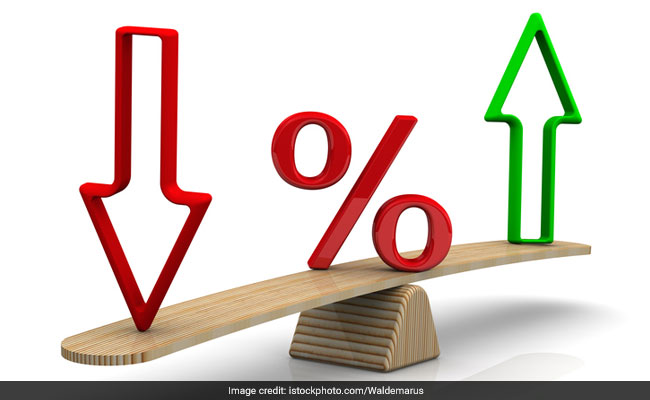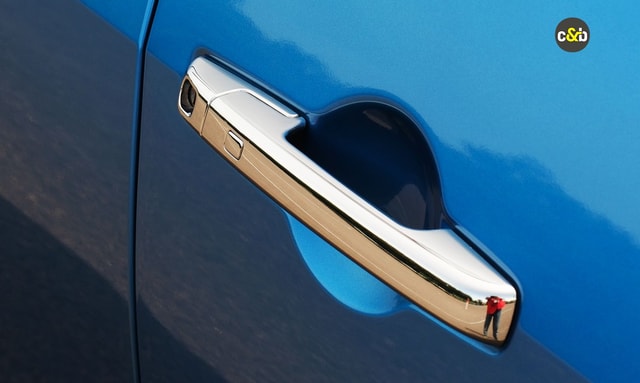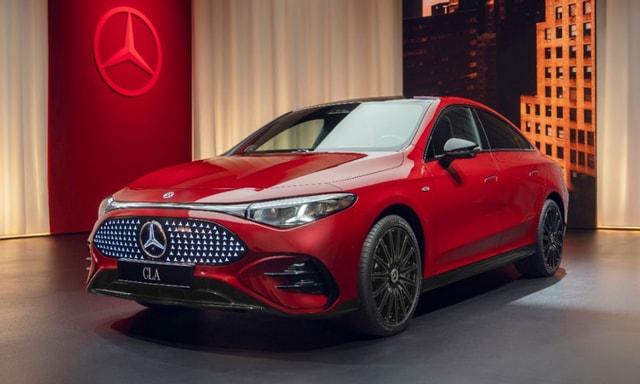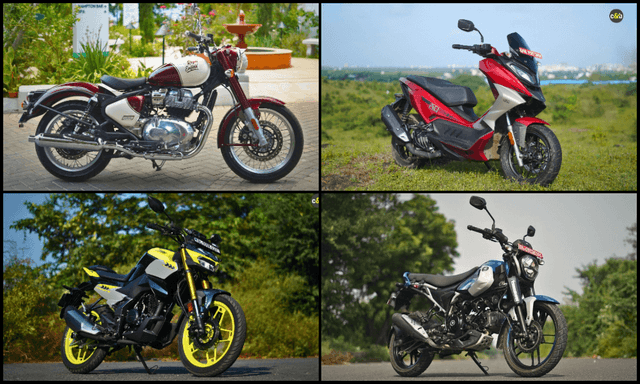RBI's Repo Rate Hike Likely To Have Nominal Impact On Car Loans And Sales

- RBI has revised the repo rate and CRR by 40 bps and 50 bps, respectively.
- The hike in lending rate is nominal and will have minimal impact on sales
- Increase in interest rate and deposit rate will affect buyers' sentiments
The Reserve Bank of India (RBI) pulled a surprise announcing a hike of 40 basis points (bps) or 0.40 per cent on its lending rate to commercial banks and a 50 bps or 0.50 per cent increase in the Cash Reserve Ratio (CRR). After a hiatus of four years, the repo rate has gone up to 4.40 per cent from the previous 4 per cent, while CRR has been hiked to 4.5 per cent. And the sudden revision has raised concerns among car buyers and automakers on the impact it will likely have on sales.
Vinkesh Gulati, President, Federation of Automobile Dealers' Association (FADA) said, "The RBI's move of increasing repo rate by 40 bps has clearly taken everyone off guard. This move will curb excess liquidity in the system and will make auto loans expensive."
Also Read: RBI Repo Rate Hike: How It Will Affect Two-Wheeler Loans

RBI has announced a hike of 40 basis points (bps) or 0.40 per cent on its lending rate to commercial banks and a 50 bps or 0.50 per cent increase in the Cash Reserve Ratio (CRR).
The revisions made by the central bank are likely to have a nominal impact on interest rates on loans. But according to our sources in the State Bank of India (SBI), interest rates on any loan across sectors will not see an upward revision exceeding 0.40 per cent. In fact, the hike made by commercial banks is likely to be well within the 40 bps mark and same goes for car loans. At present, interest rates on car loans mostly range from 7.4 per cent - 8.3 per cent across the banking sector which could be revised to a maximum of 7.8 per cent - 8.7 per cent, if commercial banks decide to pass on the entire burden on customers.
For your perspective, increase in actual interest per lakh is likely to be just Rs. 400 per annum (P.A.) if the entire burden is passed on, which in-turn will be an increase of Rs. 33.33 per lakh per month. So let's say if you take a loan of Rs. 10 lakh, your interest rate is likely to go up by a maximum of Rs. 4000 P.A. which will translate into a increase of Rs. 333.33 in your monthly car loan EMIs.

At the moment, pacing up production in a bid to mainting adequate inventory and reducing long waiting periods remains the bigger concern of automakers and stakeholders.
Sharing his views with carandbike, R C Bhargava, Chairman - Maruti Suzuki said, "We already have a huge backlog due to chip shortage, so the revision in rates won't have a major impact on our sales. It's a nominal revision so interest rates will have a very nominal affect, so customer sentiments won't be severely impacted as they won't really feel the impact."
Sharing his views on the overall impact, Sridhar V, Auto Analyst, Grant Thornton LLP said, "The impact of RBI rate revision will be felt minimally on auto loans in the near term and could have customers holding back their instinct to purchase since cost of acquisition of vehicles could go up. But on a medium to longer term it will get neutralised as the regime of low interest rates is possibly behind us now and one cannot expect a drop in interest rates in the near future. However the greater challenge is for the OEM's as currently they are faced with higher input costs, higher fuel prices and availability of critical input materials and this could be another additional aspect which could hamper their sales. The industry will soon be looking at some demand creating sops like reduction of GST, which they have been seeking for a long time."
The industry has been bearing the brunt of a global supply crisis of semiconductors and at the moment, pacing up production in a bid to maintaining adequate inventory and reducing long waiting periods remains the bigger concern of automakers and stakeholders.

Increase in interest rate on both loans and desposits is likely to have impact on buyers' sentiments.
Even observers have said that 40 bps impact on interest and EMIs will be minimal. So, overall volume outlook remains more or less the same. The volume segments which range from Rs. 5 lakh to Rs. 18 lakh brackets (hatchbacks and compact cars and SUVs) will likely see a very nominal impact as the standard amount of loan taken for these cars ranges from Rs. 4 lakh - Rs. 12 lakh and the maximum increase in monthly EMIs in this case will be around Rs. 500. Having said that, the overall sentiment is likely to be one of caution, with rising fuel prices and periodic hikes by OEMs, since general buyers will take time to understand the impact of the quantum of the interest hike.
Latest News
 car&bike Team | Feb 3, 2026China Mandates Fitting of Mechanical Door Handles On New Cars From 2027Vehicles already on sale to be given an additional 2 years to conform to the new norms.2 mins read
car&bike Team | Feb 3, 2026China Mandates Fitting of Mechanical Door Handles On New Cars From 2027Vehicles already on sale to be given an additional 2 years to conform to the new norms.2 mins read car&bike Team | Feb 3, 2026Mercedes-Benz CLA EV India Debut In April 2026The new-gen CLA, in its all-electric avatar, was globally unveiled in March 2025.1 min read
car&bike Team | Feb 3, 2026Mercedes-Benz CLA EV India Debut In April 2026The new-gen CLA, in its all-electric avatar, was globally unveiled in March 2025.1 min read car&bike Team | Feb 3, 2026Two-Wheeler Sales January 2026: Hero MotoCorp, TVS, Royal Enfield, Suzuki Report Sustained GrowthMost brands have reported year-on-year growth in the first month of CY26.4 mins read
car&bike Team | Feb 3, 2026Two-Wheeler Sales January 2026: Hero MotoCorp, TVS, Royal Enfield, Suzuki Report Sustained GrowthMost brands have reported year-on-year growth in the first month of CY26.4 mins read car&bike Team | Feb 2, 2026Car Sales January 2026: Six Marutis in Top 10, But Tata Nexon Takes Top SpotTata Motors sold 23,365 units of the Nexon, creating a clear gap to the Maruti Suzuki Dzire, which finished second with 19,629 units.1 min read
car&bike Team | Feb 2, 2026Car Sales January 2026: Six Marutis in Top 10, But Tata Nexon Takes Top SpotTata Motors sold 23,365 units of the Nexon, creating a clear gap to the Maruti Suzuki Dzire, which finished second with 19,629 units.1 min read car&bike Team | Feb 2, 2026Maruti Suzuki Victoris Crosses 50,000 Sales Milestone In 4 monthsThe compact SUV launched at the onset of festive season has crossed the 50,000 sales mark in about 4 months1 min read
car&bike Team | Feb 2, 2026Maruti Suzuki Victoris Crosses 50,000 Sales Milestone In 4 monthsThe compact SUV launched at the onset of festive season has crossed the 50,000 sales mark in about 4 months1 min read car&bike Team | Feb 2, 2026Maruti Suzuki Announces Price Protection Amid Long Waiting PeriodsCountry’s largest carmaker has said that prices of the cars will not be increased for customers who have already made the bookings1 min read
car&bike Team | Feb 2, 2026Maruti Suzuki Announces Price Protection Amid Long Waiting PeriodsCountry’s largest carmaker has said that prices of the cars will not be increased for customers who have already made the bookings1 min read
 Preetam Bora | Feb 2, 2026TVS NTorq 150 Road Test Review: Bigger, Better & More Efficient!We test the new TVS NTorq 150 out in the real world to get a sense of what it offers in terms of performance, dynamics and fuel economy.7 mins read
Preetam Bora | Feb 2, 2026TVS NTorq 150 Road Test Review: Bigger, Better & More Efficient!We test the new TVS NTorq 150 out in the real world to get a sense of what it offers in terms of performance, dynamics and fuel economy.7 mins read Bilal Firfiray | Jan 21, 2026Tata Punch Facelift Review: New Turbo Engine; Same Old SoulWith the update, the Tata Punch facelift retains its character of being a healthy runabout, which is perfect for Indian roads. But have these changes made it any better?7 mins read
Bilal Firfiray | Jan 21, 2026Tata Punch Facelift Review: New Turbo Engine; Same Old SoulWith the update, the Tata Punch facelift retains its character of being a healthy runabout, which is perfect for Indian roads. But have these changes made it any better?7 mins read Amaan Ahmed | Jan 17, 2026Bajaj Chetak C25 First Ride Review: Basic, Likeable E-Scooter For First-Time RidersThe Chetak C25, in quite a few ways, is poles apart from the larger and more powerful 30 and 35 Series models, but in its mannerisms, it is very much a Chetak.8 mins read
Amaan Ahmed | Jan 17, 2026Bajaj Chetak C25 First Ride Review: Basic, Likeable E-Scooter For First-Time RidersThe Chetak C25, in quite a few ways, is poles apart from the larger and more powerful 30 and 35 Series models, but in its mannerisms, it is very much a Chetak.8 mins read Bilal Firfiray | Jan 9, 2026Toyota Urban Cruiser Hyryder: 10,000 km Long-Term ReviewAfter spending over three months and 10,000 km with the Toyota Urban Cruiser Hyryder Hybrid, we were impressed by its real-world mileage, seamless hybrid, practical comfort, and Toyota reliability. Is it the best C-SUV then?5 mins read
Bilal Firfiray | Jan 9, 2026Toyota Urban Cruiser Hyryder: 10,000 km Long-Term ReviewAfter spending over three months and 10,000 km with the Toyota Urban Cruiser Hyryder Hybrid, we were impressed by its real-world mileage, seamless hybrid, practical comfort, and Toyota reliability. Is it the best C-SUV then?5 mins read Seshan Vijayraghvan | Jan 8, 20262026 Mahindra XUV 7XO Review: Big On Tech, Bigger On ComfortThe new Mahindra XUV 7XO is flashier, feature packed, and comes with more advanced tech. But are the changes just incremental or actually substantial?1 min read
Seshan Vijayraghvan | Jan 8, 20262026 Mahindra XUV 7XO Review: Big On Tech, Bigger On ComfortThe new Mahindra XUV 7XO is flashier, feature packed, and comes with more advanced tech. But are the changes just incremental or actually substantial?1 min read


























































































































